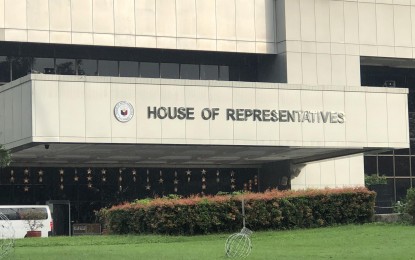
MANILA – House of Representatives Speaker Ferdinand Martin G. Romualdez said Thursday the International Monetary Fund (IMF) team’s positive outlook on the Philippine economy motivates the House to “redouble” its efforts to pass priority measures to sustain the country’s progress.
During a meeting with Romualdez on Wednesday, the IMF team, led by mission chief Jay Pereis, said the Philippine economy would pick up its pace in the second half of 2023 and would even be faster by 2024, despite signs of a global slowdown.
“This forecast is not only encouraging but also a testament to the resilience and hard work of our nation's people, as well as the sound economic policies and reforms implemented by the administration of President Ferdinand R. Marcos Jr.,” Romualdez said in a statement.
He said the IMF team’s forecast is also a reminder that the country has the potential to rebound and emerge stronger from any adversity.
The moderate pace of 4.3 percent of the country’s gross domestic product (GDP) in the second quarter, brought the real GDP growth to 5.3 percent for the first semester of the year but economic managers are confident the target growth rate of 6 percent to 7 percent remains attainable.
Among others, the IMF team cited the expected early enactment of the 2024 national budget, as well as various laws providing an improved competitive edge to the country in terms of attracting foreign direct investments.
Romualdez told the IMF team that the House is set to approve on the third and final reading on the same day the proposed PHP5.768 trillion 2024 national budget and complete the passage of the 20 Legislative - Executive Development Advisory Council (LEDAC) priority measures.
The IMF team said “the early passage of the budget could make a big difference” as funds for infrastructure projects and social amelioration could be frontloaded in the first quarter to offset the effect of low government spending.
Among the key factors cited by the IMF team for the positive outlook are the passage of the following laws to attract more foreign direct investments:
• Foreign Investment Act – allowing first-time foreign investors to fully own domestic enterprises in the Philippines;
• Retail Trade Liberalization Act – reducing the minimum paid-up capital requirements for foreign retail enterprises; and
• Public Services Act – where foreign investors could now own 100 percent of public service projects in the country.
The IMF team also noted the impending enactment of other measures meant to make the country an ideal destination for foreign direct investments. These are the amendments to the Build-Operate-Transfer (BOT) /Public-Private Partnership (PPP) Act, which the House passed in December 2022 and the Senate approved recently on third and final reading, and Fiscal Regime for the Mining Industry Act, which the House approved on third and final reading on Tuesday.
The IMF team said the measure, which gives the government a fair and increased tax take from mining while ensuring the competitiveness, attractiveness, and sustainability of the country’s mining industry, could greatly contribute to the country’s economic growth.
The Philippines is the fifth most mineralized country in the world, with an estimated USD1 trillion in untapped reserves of copper, gold, nickel, zinc, and silver.
Romualdez, however, said the country must improve its processing capability and not just export raw ore.
Meanwhile, the IMF team said it would be a “very good idea” for the Philippines to train and capacitate its workforce for the increasing use of Artificial Intelligence, particularly in the Business Process Outsourcing (BPO) industry where the country has a competitive advantage.
In addition, the IMF team recommended further improving regulations to hasten the processing of permits and documentation required on investments and businesses, as well as the implementation of laws against money laundering.
“We understand that there is still work to be done to ensure this projection becomes a reality. The government will continue to focus on policies that promote economic stability, job creation, and sustainable growth,” Romualdez said.
“We will also work to improve the investment climate and further enhance our economic resilience in the face of external shocks.” (PNA)
